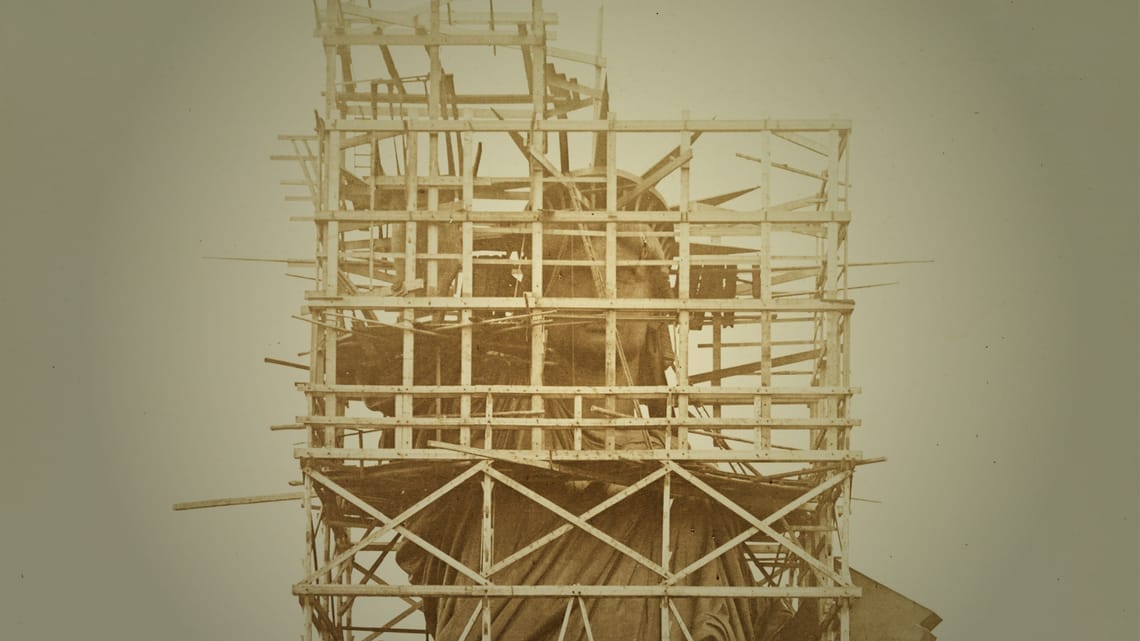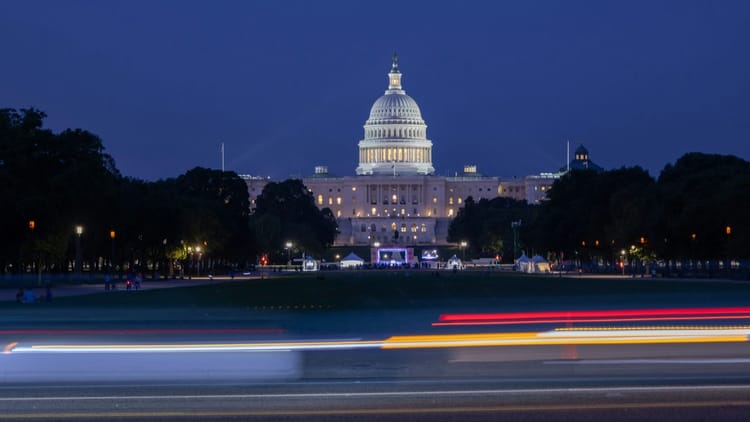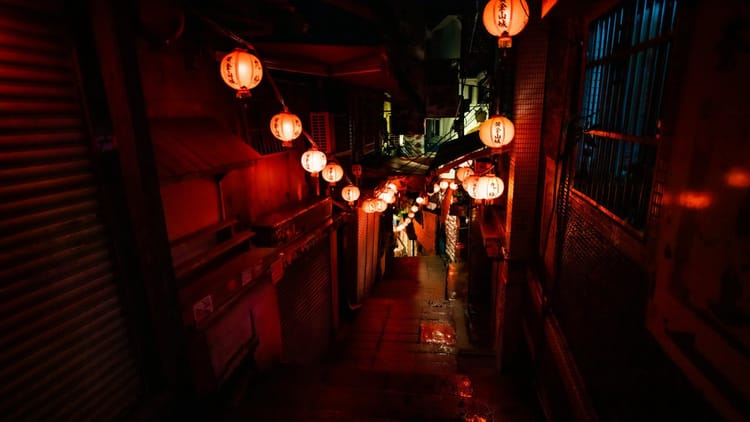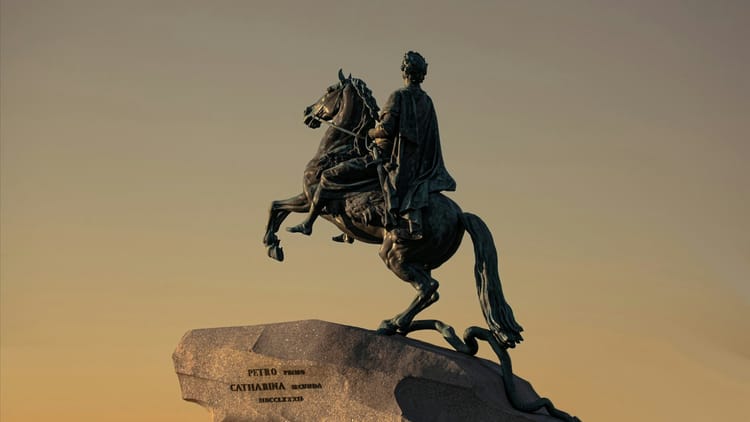Seven minutes in Paris

Recently: The weekend despatch: Power and risk in the new Washington. A vexing disturbance from the Antarctic seafloor. &c.
Today: A daylight heist at Paris’s most famous museum. What do the clues say about the thieves and their targets?
+ For members: Is Donald Trump really deconstructing democracy in the United States? Stephen Hanson on the American consolidation of patrimonial rule.
& New music from Malibu ...
Four minutes inside
Four men arrived at the Louvre on Sunday morning in a truck-mounted furniture elevator, two wearing high-visibility vests—one yellow, one orange. They positioned the ladder against the museum’s Seine-facing facade, climbed to a second-floor window, and used angle grinders to slice through the glass. Inside the Apollo Gallery, they smashed two display cases and grabbed nine pieces of France’s crown jewels. They then descended, attempted to torch their equipment, fled on two Yamaha TMax scooters toward a nearby highway, and vanished. Total elapsed time: barely more than 400 seconds. Museum visitors were already inside.
The forensics suggest professionalism—though of a particular kind. France’s Interior Minister Laurent Nuñez called the crime “a major, highly organized operation” by a team that had done assiduous reconnaissance. The timing certainly shows sophistication: Sunday morning, just after 9:30 a.m., when the museum had opened but security was still thin—visitors present but not yet crowding the galleries. The disguises worked—workers with high-vis vests and a furniture elevator don’t attract attention at a museum undergoing renovations. The tools were right: angle grinders cut glass fast, scooters navigate Paris traffic and disappear on highways. But the thieves left behind their equipment, a walkie-talkie, gloves, and a crown—Empress Eugénie’s diadem, featuring 1,354 diamonds and 56 emeralds, apparently dropped during the escape and later found damaged outside the museum. They grabbed items from the Napoleonic era: tiaras, necklaces, earrings, brooches once worn by Marie-Amélie, Marie-Louise, Eugénie. Art theft expert Anthony Amore told reporters these pieces are “priceless not just in terms of dollars, but in terms of cultural patrimony”—and noted that unlike a famous painting, individual jewels broken from their settings become “indistinguishable to members of the public.”
The question: What more does the evidence say about who these thieves are and what they intend to do next? The precision suggests organized crime with art-theft experience. The target selection—crown jewels rather than paintings—points to someone who understands that Napoleonic jewelry can be dismantled and sold as component gems, avoiding the problem you’d face trying to fence the Mona Lisa. The attempted arson of equipment shows awareness of forensic investigation but failed execution. The dropped crown—who knows. But all in all, these guys were professional enough to get in and out in seven minutes, despite one or two things not going fully to plan. The Louvre has security cameras, perimeter detection, guards—and yet four men walked up with a ladder in broad daylight and drove away with pieces of French imperial history. Police are studying the escape route. So far, that’s it. But somewhere, presumably, the nine pieces are either being hidden intact or taken apart, stone by stone.

Meanwhile
- When the cloud falls. Amazon Web Services experienced a major outage early Monday morning, disrupting dozens of websites and apps worldwide for several hours. The problem originated in Amazon’s US-EAST-1 region in northern Virginia—a critical hub for global internet infrastructure—affecting services including Ring doorbells, banking apps, and Amazon’s own site. Amazon said the issue stemmed from its DynamoDB database service and was “fully mitigated” by midday. The outage exposed the risks of centralized cloud dependency: AWS controls a significant share of the global cloud market, and when a single region fails, effects cascade worldwide. Europe’s Future of Technology Institute called reliance on monopoly cloud providers “a security vulnerability.”
- Allies and adversaries. U.S. President Donald Trump announced on Sunday that the United States will slash aid to Colombia and impose tariffs, calling President Gustavo Petro an “illegal drug dealer” who “does nothing to stop” cocaine production. Petro accused the U.S. of murdering the Colombian fisherman Alejandro Carranza in a September strike and said he would pursue legal action internationally. Colombia is the top recipient of American assistance in Latin America and a longtime security partner—but Trump decertified the country as a drug-control partner in September. In the meantime, American warships and aircraft are conducting what the administration calls an “armed conflict” with drug cartels in Caribbean waters.
- Capitalism for all. Bolivia’s Rodrigo Paz—a centrist senator and the son of a former president—won his country’s presidential election on Sunday with 54 percent of the vote, ending nearly 20 years of rule by the Movement Toward Socialism party, which failed to advance a candidate to the runoff. Paz defeated the right-wing former president Jorge “Tuto” Quiroga as voters faced the country’s worst economic crisis in decades—annual inflation near 25 percent, critical shortages of dollars and fuel, hours-long lines for basics. Bolivia’s energy revenues collapsed from US$6.1 billion in 2013 to $1.6 billion in 2024. Paz campaigned on “capitalism for all” and promises to reopen Bolivia to international investment—though while maintaining some social protections. He takes office November 8.
- Still a ceasefire, barely. The Israel Defense Forces launched strikes across Gaza on Sunday after the killing of two IDF soldiers in Rafah. Israel accused Hamas of a “blatant violation” of the week-old ceasefire; Hamas said it was “unaware” of clashes in Rafah and had lost contact with affiliated groups there since March. Israel’s Prime Minister Benjamin Netanyahu’s government temporarily halted aid deliveries but reversed the decision under U.S. pressure. Trump envoys Steve Witkoff and Jared Kushner return to the region this week. Both sides have accused each other of violations since the truce started on October 10. The Rafah crossing remains closed as Israel demands Hamas return the remains of 16 dead hostages.
- Opening the contracts. The U.S. is looking to partner with companies beyond Elon Musk’s SpaceX for its Artemis moon program on account of SpaceX being “behind” on timelines, according to the American Transportation Secretary, Sean Duffy. Duffy, who’s currently the interim head of NASA, told reporters the agency would open contracts to competitors including Jeff Bezos’s Blue Origin. “We’re in a race against China.” SpaceX won a US$2.89 billion contract in 2021 to develop the Artemis III landing system, but NASA announced delays in December pushing a landing to mid-2027. Notably, Musk’s relationship with President Trump has frayed since their disagreements over spending bills earlier this year. NASA is now moving its next Artemis mission up from April to February 2026.

Wary of fast fashion?
Shop Congo Clothing Company and
make a difference—in style.
Feature
‘This time, he has the cadres’
Is Donald Trump really deconstructing democracy in the United States? Stephen Hanson on the American consolidation of patrimonial rule.
—Stephen Hanson, Gustav Jönsson

The U.S. federal government has been shut down for over two weeks. More than a million federal employees are furloughed or working without pay. Very unfortunate, but nothing out of the ordinary for a government shutdown. Yet President Donald Trump is using the situation to do something highly unusual, indeed: fire thousands of federal workers—layoffs he’s justified as targeting partisan opponents, though he hasn’t entirely specified what that means.
Meanwhile, Trump has told Attorney General Pam Bondi to investigate his political enemies. A federal grand jury indicted John Bolton last week on charges of mishandling classified documents. A former national-security adviser, he became a fierce critic after leaving the president’s first administration. Bolton is the third prominent Trump adversary to face criminal charges in recent weeks, following former FBI Director James Comey and New York Attorney General Letitia James.
Trump has also sent Immigration and Customs Enforcement to round up suspected undocumented migrants—now in many publicly documented cases, roughing up American citizens in the process. And he’s ordered the National Guard onto the streets of Los Angeles and Washington, D.C., while promising to deploy them in several more cities.
In September, the president designated Antifa—a loose-knit “anti-fascist” movement—as a terrorist organization, ordering federal agencies to "investigate, disrupt, and dismantle" it and anyone who supports it. He’s cutting off federal funding to universities for what appear to be political reasons—nine major schools got invitations to sign loyalty pledges in exchange for continued access to funds; most declined.
On October 14, a federal district court in Massachusetts rebuked the Trump administration for its “full-throated assault” on free speech in targeting pro-Palestinian demonstrators. Someone sent an anonymous note to the courthouse—apparently trying to intimidate the court: “TRUMP HAS PARDONS AND TANKS. … WHAT DO YOU HAVE?” The judge printed it on the first page of the ruling, along with the reply: “Alone I have nothing but my sense of duty. Together, We the People of the United States—you and me—have our magnificent Constitution.”
Trump seems to be moving fast. But he’s facing pushback. How far can he go?
Stephen Hanson is a professor in the Department of Government at the College of William & Mary and co-author of The Assault on the State: How the Global Attack on Modern Government Endangers Our Future. Hanson says that despite any hyperbole among Trump’s critics, he’s come to represent a real threat to the core of the American democratic state—an authentic, specific challenge as he progressively directs civil servants to put fidelity to him personally over any deference to constitutional authority.
Things are different in the president’s second term, Hanson says: Trump now has loyal cadres staffing high offices. During the campaign, he promised supporters “retribution” against political enemies. In office, he’s following through.
The question is whether the institutions undergirding the American constitutional order will hold. And already, Hanson says, they’re bending. It may still seem fantastic, but it’s a real possibility that Trump will succeed in consolidating power—a process that, as Russia under Vladimir Putin shows, can take more than a decade but that Trump is now attempting at remarkable speed …
Your loyal guide to a changing world.
Membership with The Signal means exclusive access to premium benefits:
- Regular profiles on the questions behind the headlines
- In-depth feature interviews with our network of specialist contributors from across America and around the world
- The despatch, our weekly current-affairs and cultural-intelligence briefing
- Early access to new products, including print extras
It also means vital support for an independent new enterprise in current-affairs journalism.
New music
‘Vanities’
As Malibu, the French producer Barbara Braccini produces ambient, almost New Age music. Think languorous washes of synth and city sounds, with wordless half-thoughts sung between them. And when Olivier Coates joins in on cello, they soar into the cloudless night.





